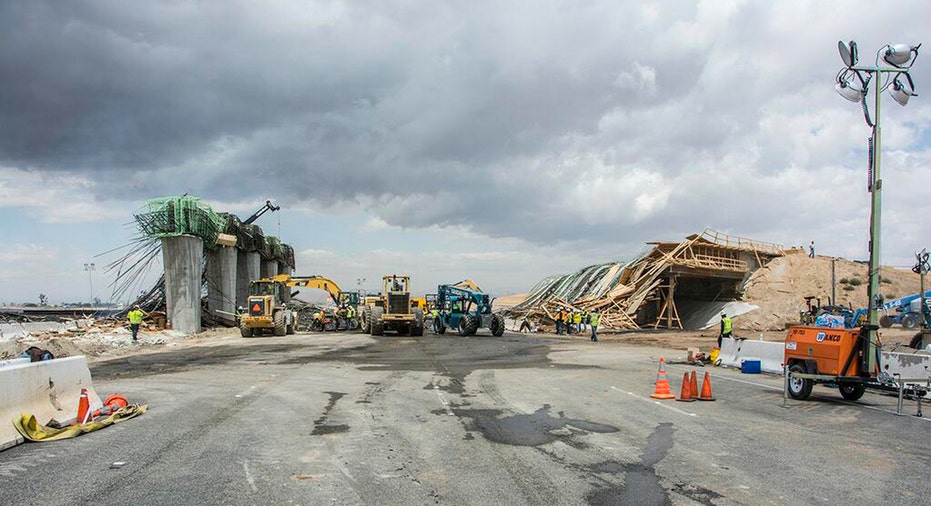Trump Administration Fast Tracks Infrastructure as Taxes, Health Care Stall

The Trump administration appeared to be fast-tracking its $1 trillion infrastructure plan Monday, as Transportation Secretary Elaine Chao said Americans can expect President Donald Trump to release details in just a few weeks.
While Chao previously said the plan would be publicly fleshed out by the end of the year, that timetable has been shifted forward amid an ongoing battle in Congress over the GOP’s plan to repeal and replace ObamaCare and implement Trump’s tax plan, which is likely to cause just as much, if not more, controversy. Infrastructure, on the other hand, is widely believed to be a subject that transcends partisan politics on Capitol Hill.
Chao told the U.S. Chamber of Commerce Monday the plan will call for $200 billion worth of taxpayer input toward the $1 trillion goal, which will be supplemented through a private-public collaboration. The plan is expected to roll out over a 10-year period.
At the end of March, the transportation secretary said the infrastructure revamp will go beyond just roads and bridges, and could include the electrical grid, veterans’ hospitals and water systems. On Monday, Chao said specifics of the plan have been hashed out with participation from experts across 16 federal agencies.
The administration’s legislative agenda initially involved repealing and replacing the Affordable Care Act first, then reforming the tax code and finally hitting America’s infrastructure system. National Economic Director Gary Cohn reiterated the administration’s intent of sticking with that timeframe in late-April, however Treasury Secretary Steven Mnuchin said tax reform would get done regardless of what happened with health care, indicating some flexibility on behalf of the White House. Many experts believe the president should’ve led with infrastructure in order to get a bipartisan win and foster cooperation before moving on to some of the more divisive topics.
The GOP’s plan to repeal and replace ObamaCare passed the House of Representatives earlier this month, however the bill is now in the hands of the Senate where it could face a much tougher approval process. Cohn and Mnuchin unveiled the administration’s tax blueprint last month, which differs slightly from the House GOP plan and dramatically from Democratic priorities.



















